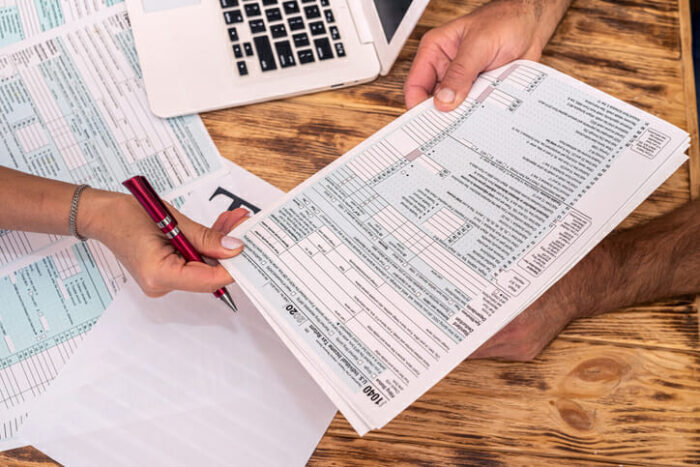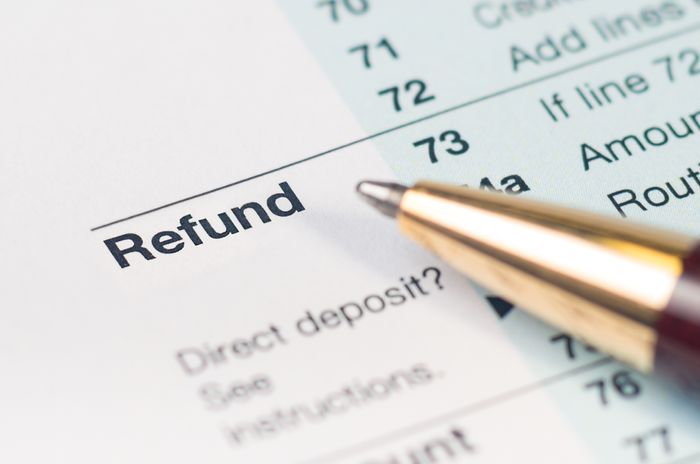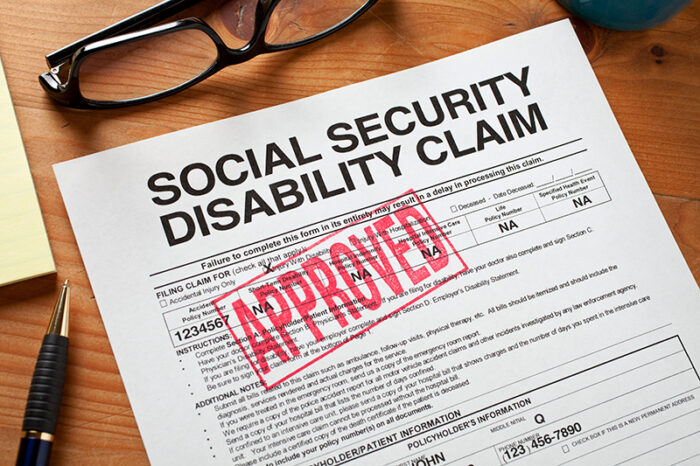
Americans owe the IRS over $120 billion in penalties, interest, and back taxes.
One of the hardest things you learn about adulthood is filing taxes. Failing to file tax returns is a common mistake among taxpayers.
However, if you owe back taxes, it’s best to address them as soon as possible. Anyone with a certain income level must file back tax returns if they meet a certain threshold. You must know how to file back taxes to avoid expensive penalties and qualify for tax refunds.
That’s why we’ve created this guide. Read on to discover more about back taxes and how to file them.
What Are Back Taxes?

Tax returns are reports that detail your tax information. This allows you to see how much you owe for the year or how much the government owes you for a refund. So with that in mind, what are back taxes?
Back taxes are generally unpaid dues an individual cannot pay for various reasons. This may include failure to pay taxes due to forgetfulness or insufficient funds. Individuals may also owe back taxes if they aren’t honest about their income.
Back taxes are different from tax liabilities. Tax liabilities are the total tax an individual or entity owes to the IRS in a given year. Back taxes refer to overdue taxes and returns that an individual or entity owes for the prior tax year.
What Happens If You Don’t File Back Taxes?
The cost of annual tax returns may vary depending on your status and age, with $5 being the minimum. However, even if you fall within that range, you must file if you want to get a refund.
Though many people forget to file their taxes, it’s not something the IRS takes lightly. From avoiding costly penalties to securing loans, here are some reasons you don’t want to delay filing back tax returns.

Claim Your Refund
Taxpayers are eligible for tax refunds if they overpay or make a mistake in their documentation. However, you may risk losing your refund if you have unpaid dues. The IRS holds income tax refunds if they see past dues in your records.
Taxpayers must file their returns and claim them within three years. The IRS will hold your refund until you’ve paid your dues. Your debt may also be forgiven if you provide an acceptable reason for failing to file your return.
If you qualify for credits and deductions but owe back taxes, the IRS may exclude them from your substitute returns.
Avoid Obtaining Penalties and Interest
The IRS will charge you interest and penalties for failing to file your taxes. The IRS charges an additional 5% of your unpaid taxes as a penalty. The penalty will go up another 5% for each subsequent month for five months.
Though the IRS can only charge a maximum of 25%, you must also pay a late-filing penalty for returns 60 days past the due date. This penalty will amount to your total overdue bill or $435, whichever amount is less.
There’s also a “failure-to-pay” penalty. The IRS will charge 0.5% of your total bill every month you don’t pay. The interest will accumulate until you fully pay your tax liabilities.

Protect Your Benefits
Self-employed individuals may risk losing their social security benefits if they owe back taxes. If you don’t file your federal income tax return, the IRS won’t report your income to the SSA. This means you won’t get any credits for Social Security disability benefits or retirement.
Qualify for Loan Applications
Owing back taxes may prevent you from qualifying for certain loans. Whenever you apply for a loan, whether it’s federal aid or home financing, you must submit a copy of your filed tax returns.
If you haven’t settled your taxes or set up a payment agreement, the IRS can pursue you with liens and levies. A lien can hinder you from buying or selling a home as it lets other creditors know you’re in debt. Tax liens may not appear on credit reports, but lenders will see them.

Avoid Wage Garnishment
The IRS may try to collect payments for unpaid dues through wage garnishment. This differs from a levy because they will not directly take money from your bank account.
Instead, they will contact your employer and ask for a portion of your wages. Employers are under a legal obligation to comply.
Avoid Tax Levies
Tax levies are the most painful consequence of failing to pay back taxes. If you owe money to the IRS, you will receive several notices of their intent to levy. The IRS will often not pursue levies unless they decide you have no intention of paying your debt.
Levies are dangerous because they permit the government to seize your assets. Because the IRS is a federal agency, they don’t need a court order to levy property. The IRS can then go after your wages, property, or entire savings account.

How to File Back Taxes
The IRS doesn’t limit how long you have to file back taxes. However, if you wait more than three years, you’ll lose any refund you had. If you wait six years or longer, the IRS may take action against you.
The best course of action is to settle your debts and file your returns as soon as possible. Here’s where to start:
Gather the Necessary Documents
Get all the information from the tax year you need to file a past-due return for. Back taxes require the same information as on-time tax returns do. This generally includes your forms W-2 and 1099.
You can also contact the IRS to find out what records you’re deficient in. Don’t hesitate to request an extension if you need more time to get your files in order. This will stop the IRS from taking action to collect your debt.
After sending a request, the IRS will send the tax return information they have on record. However, remember that this won’t include credits or deductions, so you’ll have to address these on your own.

Complete and Submit Return Forms
The required forms to pay back taxes will vary depending on your situation. Here are the documents you need to prepare:
- Form W-2 for wage and tax statement
- Form 1099-G for unemployment benefits
- Forms 1099-NEC or 1099-MISC for contract work
- Form 1099-R if you took distributions from your retirement account
- Form 1098, if you have mortgage interest over $600
- Form SSA-1099 if you have social security benefits
- Form 1098-T for settled tuition expenses
If you qualify for deductions and credits, include records as proof.
Know Where to Submit Your Forms
Unless you receive an IRS notice, you can file past dues at the same location where you’d file regular returns. Otherwise, follow the instructions on the notice to ensure your documents go where they need to go. Don’t forget to attach a penalty relief request if you have one or more past dues.
Qualifying for penalty relief can be difficult if you have multiple returns, but you can explore your options. It’s also best to get proof that you filed back taxes. This will help if the IRS fails to process your return and comes after you.

Work With an Expert
Filing back taxes, even regular taxes, can get pretty overwhelming. It can be easy to miss important details, especially if you have multiple overdue tax returns.
A tax expert can help you navigate complicated situations like incomplete tax documentation. A professional can also serve as your advocate when negotiating settlement with IRS.
Check on the Status of Your Return
It can take up to six weeks for the IRS to process overdue returns to ensure no errors. You can contact the IRS to find out about its status.
What If You Can’t Afford to Pay Back Taxes?
Even though the maximum interest rate is only 25% of your bill, it can still be a heavy burden once you decide to settle your debt. If you owe less than $100,00, you can contact the IRS to set up a payment plan. The installment agreement can start at $31.
However, this may vary depending on how much you owe, how you pay, and how much you earn.
You can also request an offer in compromise, but this has tighter restrictions. You must first submit all past-due tax returns to qualify for this. An individual must also have completed tax payments for the current tax year.
If you meet these requirements, you may be able to pay less than your entire balance. The IRS only approves this if you have no means to pay your balance.

Settle Back Taxes Today
Now you know how to file back taxes. The best way to avoid back taxes and costly penalties is to pay and file your taxes on time. Use this guide, and don’t hesitate to contact a professional if necessary.
Do you want to finally master your taxes? Check out our other blog posts for more tips.





